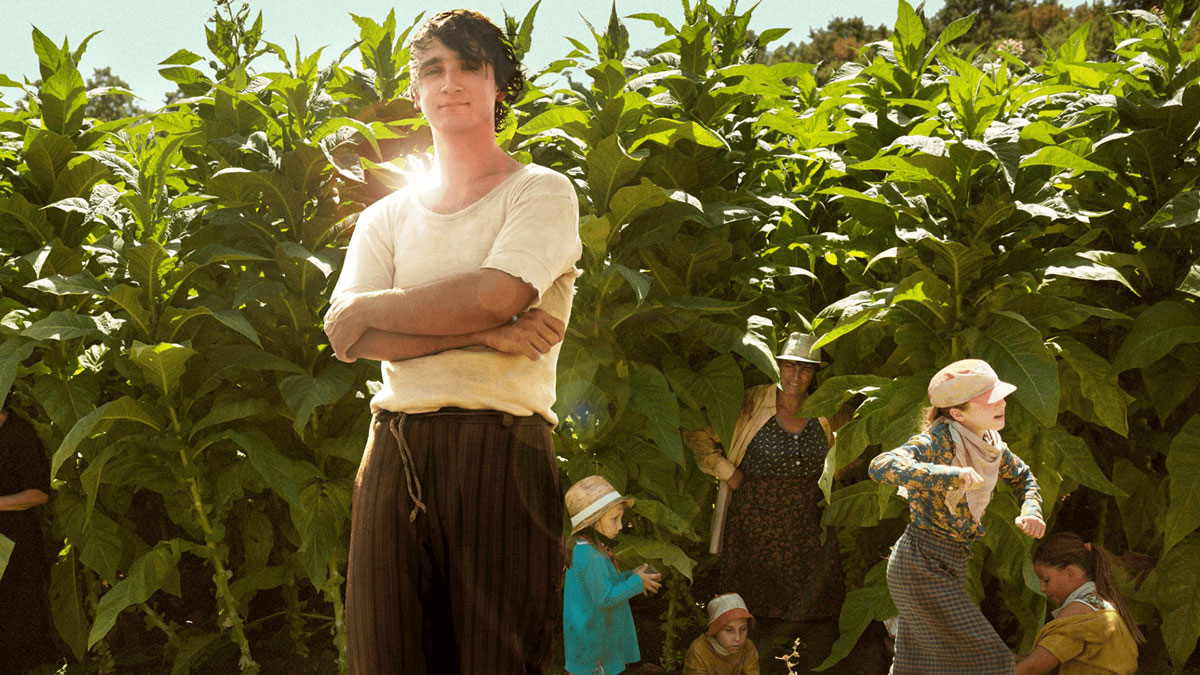
(c)2018 tempesta srl, Amka Films Productions, Ad Vitam Production, KNM, Pola Pandora RSI, Radiotelevisione svizzera, Arte France Cinema, ZDF/ARTE
"Happy as Lazzaro" Is there a place in modern times that will accept "innocents"?
2019.04.23
*Information at the time of article publication in April 2019.
Summary of "Happy as Lazzaro"
The village of Inviolata (meaning "Pure Village") is isolated from the outside world by a valley. The villagers are ruled by their lord, the Marchioness de Luna (Nicoletta Braschi). Among them is a young farmer who works harder than anyone else. His name is Lazaro (Adriano Tardiolo). He is too kind-hearted, so his peers look down on him and force him to do all the work. One day, the Marchioness' beautiful son Tancredi (Luca Cicovani) comes from the city. Tancredi recruits Lazaro to join him and stages a kidnapping spree, and the two of them form a strong bond. Around that time, the kidnapping leads to the existence of Inviolata being reported to the world as the scene of a large-scale labor exploitation by the lord. In the end, all the villagers leave the village they are used to living in, except for Lazaro...
Index
Newspaper articles and Italian films
Yodogawa Nagaharu, a film commentator and critic, once expressed the characteristics of the films of each country in a few simple words. According to him, American films are based on the theme of "life," while Swedish films have the theme of "God." French films are all about "love," while Italian films are like "page three articles" in newspapers. This Italian film, "Happy as Lazzaro," is a perfect example of this. Director Alice Rohrbacher says that the subject of "Happy as Lazzaro" is the content of a newspaper article from the 1980s that she came across as a student and that no one remembers now.
The article was the inspiration for the setting of this work, where a marquis's family with vast tracts of land treated tenant farmers like slaves. The farmers lived in isolation within a limited area, and were treated unfairly and out of step with the times. They had no access to information from the outside world, and their children did not attend school for compulsory education. Therefore, they were unable to realize that they were being forced to do outdated labor that ignored their human rights.
Eventually, the police get involved due to some trouble caused by the marquis' spoiled son, Tancredi, and the abnormal situation becomes known. When the police arrive and ask, "Aren't the children in this village going to school?" the tenant farmers respond, "School is for children from good families," surprising the policeman. The farmers are then rescued and allowed to move off the land and live in the city. Case closed.
"Happy as Lazzaro" trailer
...But that's not the end of the story. When The Day After film shows the former tenant farmers as time passes, they look even more shabby than before. Even after they settled in the city, they were forced to live in extreme poverty.
If you think about it, it may be obvious. There is no way that these people with no education, no way to get by in life, and no connections could survive in a modern competitive society. In addition, Italy has been in a long-term economic recession, and is facing rising poverty rates due to widening economic disparities, as well as the problem of immigrant poverty. The farmers in this film are no different from immigrants to Italy. Therefore, what is depicted here can be said to be the plight of immigrants in Italy itself. And it is also a problem common to many countries around the world.

